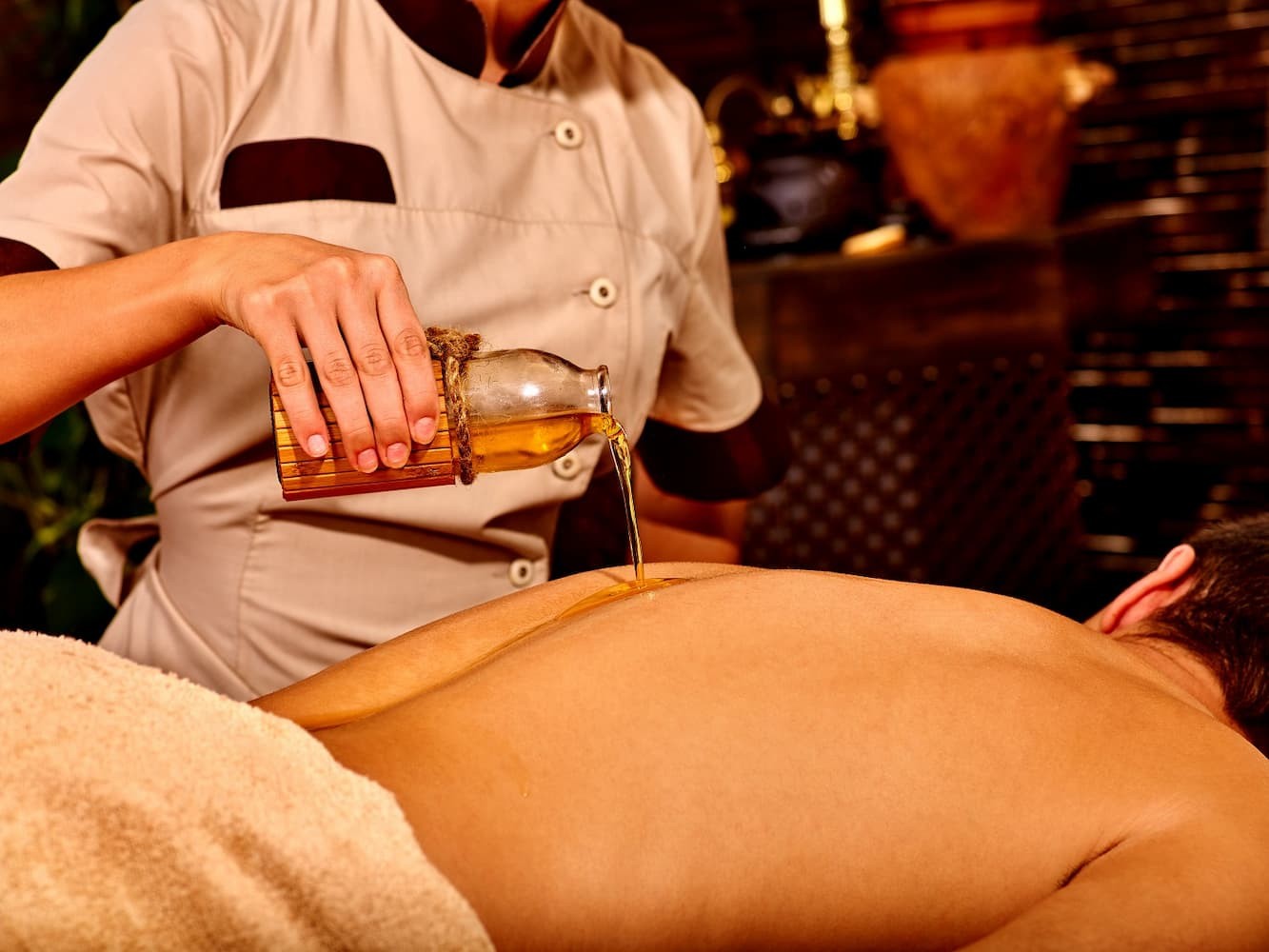
Panchakarma is a cleansing process used as part of several other Ayurvedic treatments designed to detoxify the human body. Panchakarma treatments consist of five therapies that aim to cleanse and rebalance the three doshas, namely vata, pitta and kapha, to prevent disease.
Panchkarma can be done any day, at any time of year, but ideally should take place during spring or fall, when the digestive fire, known as agni, is strong enough to support the therapeutic purgation involved in the cleansing process.
Panchakarma can be performed in a hospital setting, at home, or in a panchakarma retreat, depending on your Ayurvedic practitioner's instructions. It is an effective way to eliminate toxins from your body and thus get rid of tonsillitis and other ailments. Panchakarma therapy is not a one-time treatment; for best results, it should be done every six months or more.
What are the benefits of panchakarma?
Ayurvedic medicine believes that a toxic body creates the ideal environment for disease to grow. Once ama, which means toxins, enter the bloodstream and clogs tissues and organs throughout the body, impairing immunity and energy levels, disease will soon follow. A deep cleansing therapy, such as panchakarma, combined with a balanced diet and healthier lifestyle choices, will deter the degenerative process of toxicity. Ayurveda panchakarma provides a plethora of benefits, including:
- Cleans the body of toxins
- Strengthens body tissues
- Prevents skin disease
- Manages anxiety and depression
- Relieves body aches
- Increases energy levels
- Prevents chronic diseases
- Enhances mental clarity
- Treats digestive issues
This form of healing therapy has even been acknowledged by the World Health Organization (WHO) as an effective treatment for psoriasis.
How does panchakarma work?
Whether you receive this type of Ayurvedic therapy in a clinical setting or at a panchakarma retreat on a hilltop, the same method applies. A full-body oil massage will prepare your body to expel toxins before the purification begins, driving the toxins to the digestive tract, where they will be dissolved later. Once your body is ready, a panchakarma method is used based on your body type. This means that a person with a vata dosha will be treated differently than someone with a pitta dosha or a kapha dosha.
Panchakarma is broken down into five steps, which are as follows:
1. Vamana
In this stage of the cleansing and healing process, the Ayurvedic practitioner induces controlled vomiting of ama. It uses herbs to induce vomiting and clearing from the body's system to help detoxify and cleanse its digestive system. Vomiting has been used in many cultures going back thousands of years because it helps clear toxins that have built up in a person's digestive system due to their poor diet or lifestyle choices which can lead to chronic health diseases.
2. Virechan
Virechan is generally recommended for any type of health problem because it works to improve overall wellbeing and vitality. Before panchakarma, patients prepare by fasting and drinking warm herbal concoctions. Then they're given purgative oil followed by a steam bath and massage.
3. Basti
Basti involves enemas for detoxification purposes. It can be done to both prevent illness and reduce symptoms of certain illnesses. Basti is helpful if you are experiencing constipation, diarrhoea or urinary tract infections (UTIs).
4. Nasya
Nasya is one of the panchakarma therapies where medicated oil is administered to the patients through the nasal cavity. This particular panchakarmic technique helps to improve the health and balance of your nervous system. It is also used in Ayurveda to clear the respiratory tract and reduce symptoms and pain caused by certain diseases.
5. Rakta Mosha
This step involves taking a little amount of blood from the blood vessels to purify impure blood. The goal of this technique is to neutralise toxins while also strengthening the immune system.
Source: Dheemain Ayurvedic Centre
Tips on how to prepare for a panchakarma treatment
Whether you're receiving panchakarma therapy to prevent or treat a condition, there are a few things you should do to ensure a successful outcome. These are some of them:
- Clean teeth and tongue. You should brush your teeth with neem twig or neem stick or just chew some fresh tender leaves of neem twice a day for good health.
- Avoid onions, salt, sour items, hot or spicy foods during panchakarma since they can increase pitta dosha in the body instead of getting rid of it.
- Keep yourself warm by wearing more clothing or blanket during panchakarma except during therapeutic vomiting.
- Drink warm water with neem leaves twice a day following panchakarma treatments to replenish body fluids lost during the treatment session.









